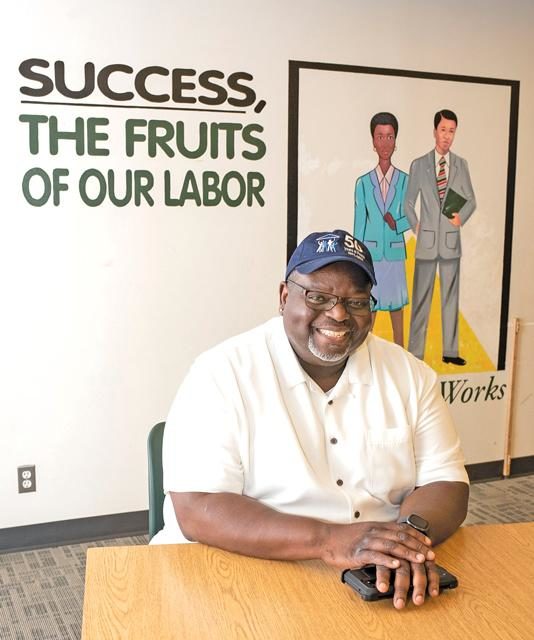Last year’s pandemic lockdowns and economic dislocations took a toll on everyone’s mental health–but the people coming through the doors of Peace Neighborhood Center were more vulnerable than most. About 90 percent of the people Billups calls the Peace “family” meet federal poverty guidelines; about 75 percent are people of color. They turn to the center on Maple Rd., or its satellites at two west-side public housing sites, for services that include food distribution, tutoring, emergency stipends, summer camps, academic counseling, and support groups.
Even during the lockdowns, Peace closed its doors for only a week. “So when people say, ‘Oh, you guys must be just getting back to work’–we never stopped!” says Billups. Now sixty, he started working at the center as a teenager and succeeded founder Rose Martin as executive director in 2006.
When the public schools went remote, they transformed the Peace building into what Billups calls “a small school.” Kids wearing masks worked in learning pods, connecting with their teachers and classmates on computers provided by the Ann Arbor Public Schools.
In addition to backing up parents, Billups says, the in-person contact reassured children and provided staff insight into how they were doing: it is harder to see “pain in a child’s eyes,” he says, through a computer screen.
Unlike many nonprofits, Peace didn’t have to lay off staff last year–in fact, several part-timers temporarily went full-time. It received federal payroll protection funds, and saw 300 new donors come on board–including four people who gave the center their entire stimulus payments. In all, individual donations rose nearly one-third last year, to almost $500,000.
The added resources made it easier to launch what Billups calls a “clinical arm.” Peace staff have always offered emotional as well as practical support; it’s not uncommon for people overwhelmed by relationships, finances, or both to break down in their offices. But now, in addition to referring people to other services for help, Peace will be able to offer therapy on site.
“We aren’t trying to reinvent the wheel,” Billups emphasizes. “I have staff who are licensed or who will be licensed” as therapists.
They’d kicked around the idea previously, he says, but “the pandemic pushed it forward.” With the need growing and Peace “at a place financially” to meet it, “the time seems right.”
Billups says that many clients, especially black men, haven’t followed through on mental health referrals for a range of reasons. His hope is that providing counseling in familiar surroundings might encourage holdouts.
